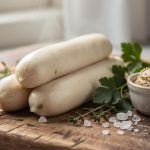Essential Considerations When Choosing UK Kitchen Equipment for Baking
Selecting the right UK baking equipment requires a clear understanding of the unique needs of UK bakers and the specific standards their kitchens must meet. UK kitchens often have compact layouts compared to other regions, so assessing available space before purchasing any baking appliances in the UK is crucial. This assessment ensures your baking tools fit comfortably without overcrowding your workspace.
Common UK kitchen layouts tend to emphasize efficiency and smart storage, which makes the choice of versatile and durable equipment even more important. Opting for multipurpose baking appliances designed to handle various tasks can save valuable counter space and offer better value for money. For example, choosing an oven with multiple baking settings or a mixer that can adapt to different attachments ensures flexibility.
Also to see : What Are the Most Unique Historical UK Kitchen Tools?
Durability is another key factor in UK baking equipment selection. Frequent baking demands tools and appliances that withstand regular use without quick wear or failure. Investing in well-built, trusted brands known for their longevity can prevent the hassle of replacements and repairs. Overall, balancing space, versatility, and durability is essential for a satisfying and efficient UK baking experience.
Key Baking Tools and Appliances for UK Kitchens
Essential equipment and considerations for home bakers
Also read : How do you select durable kitchen knives in the UK?
When selecting must-have baking equipment UK enthusiasts rely on, certain tools consistently prove indispensable. Stand mixers are a cornerstone, offering powerful, hands-free mixing for doughs and batters. Hand mixers complement these, providing versatility for smaller tasks. Baking tins in various sizes and shapes are vital for everything from traybakes to traditional British cakes. Precise digital scales ensure accurate measuring — critical in baking to achieve consistent results.
UK baking appliances often differ from international models, primarily due to electrical standards. UK appliances typically operate at 230V and use 13-amp plugs, which can affect compatibility and safety when using imports. Moreover, measurement units matter: UK recipes frequently use grams and millilitres, so appliances with metric settings or dual scales are preferable.
When evaluating the best baking tools, consider features aligned with common UK baked goods. For instance, mixers with dough hooks aid in bread-making, while a set of non-stick baking tins shaped for Victoria sponges or loaf cakes are practical choices. In addition, appliances with intuitive temperature controls and timer functions enhance user control, helping novices and seasoned bakers alike craft classic British treats with ease.
Evaluating Quality, Materials, and Suitability
Choosing durable and safe tools that meet your baking needs
When selecting quality baking equipment, understanding the materials used is crucial. The most common baking tool materials include stainless steel, silicone, and non-stick coatings. Each serves a distinct purpose: stainless steel offers durability and resistance to corrosion, silicone provides flexibility and heat resistance, while non-stick coatings facilitate easy release of baked goods.
High-quality baking tools exhibit fine workmanship. Look for smooth finishes without rough edges, firmly attached handles, and uniform coatings free from bubbles or peeling. These details reflect manufacturing standards typical of reputable offerings within the UK market.
Several trusted UK baking brands consistently deliver reliable products for home bakers. Their reputation stems from prioritizing material safety, rigorous testing, and customer feedback integration. Choosing such brands ensures your baking tools not only perform well but also last through repeated use.
By focusing on quality baking equipment made from appropriate materials and offered by dependable UK baking brands, you invest in tools that enhance baking results and provide peace of mind.
Where to Buy Baking Equipment in the UK
Choosing where to buy baking equipment in the UK involves balancing convenience, variety, and price. For those who prefer hands-on shopping, many established kitchenware stores in the UK offer a wide selection of baking tools. Retailers like Lakeland and John Lewis are known for their quality products and knowledgeable staff, providing the advantage of seeing and testing equipment before purchase.
When opting for online baking tools, websites like Amazon and specialist baking supply stores offer extensive catalogs that cater to both amateur and professional bakers. Buying online often means access to rare or specialty items not found in local shops. However, it’s important to consider shipping times and costs, particularly if you need equipment quickly.
After-sales support is vital, especially when investing in more expensive or technical baking equipment. Many UK kitchenware stores offer warranties and customer service that can assist with returns or repairs. Don’t overlook the value of reliable support, which can save time and money in the long run.
To find the best deals without compromising quality, watch for seasonal sales and subscribe to newsletters from trusted retailers. Authentic customer reviews are also a great resource to verify the performance and durability of baking tools before buying. In summary, whether you choose physical outlets or online baking tools, prioritizing quality, support, and smart deal-hunting ensures you are well-equipped for successful baking adventures.
Price Ranges and Value for Money in UK Baking Equipment
Understanding baking equipment prices UK helps home bakers make smart choices. Essential tools like mixing bowls, measuring cups, and basic baking tins usually cost between £5 and £30 each. These items are affordable and provide good kitchen equipment value due to their frequent use and versatility.
Premium items, such as stand mixers or advanced ovens, can range from £150 to over £700. While more expensive, these offer robust features and durability. The key to value lies in balancing the investment with frequency of use. For instance, a stand mixer might seem costly, but for regular bakers, it enhances efficiency and consistency, justifying the higher price.
For those seeking affordable baking tools without compromising quality, brands offering entry-level versions of popular equipment can be ideal. Look for stainless steel or silicone products that combine durability with reasonable cost. Buying individual tools rather than sets can also be a strategy to ensure you only spend on what you truly need, improving overall value.
In summary, assess your baking habits to decide whether to splurge on high-end equipment or prioritize economical, versatile items. This approach maximizes the return on your baking equipment investment in the UK.


